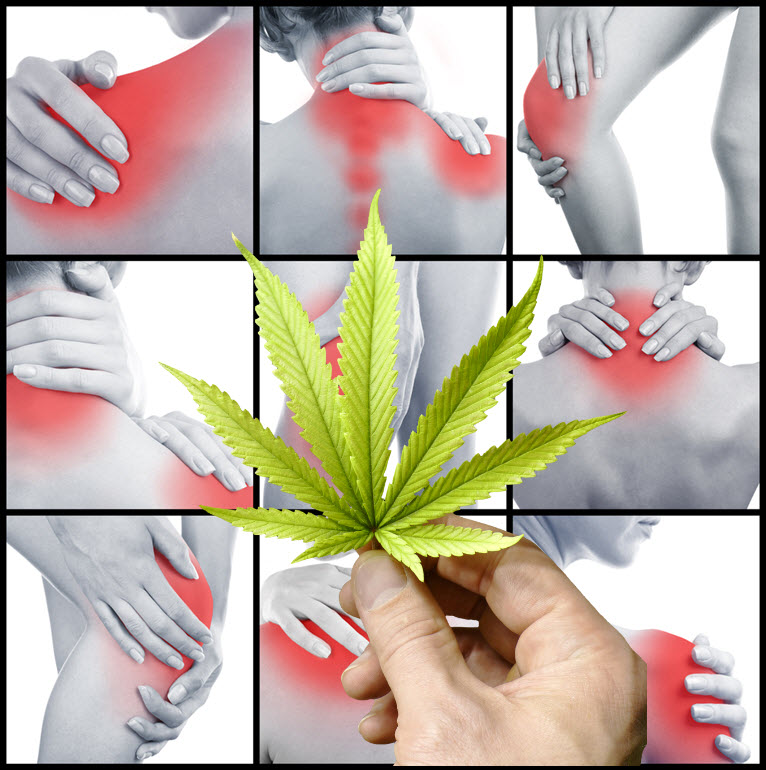
According to a new medical study, 73% of patients with chronic pain stopped taking opioids or benzos after cannabis therapy
Patients with chronic pain reduce the need for opioids and benzos after cannabis therapy
Chronic pain is a debilitating condition that affects over 50 million American adults across the country.
With one in five adults in the United States suffering from chronic pain, it’s not surprising to see the economic impact: a staggering $ 635 million a year. In addition, chronic pain is the leading cause of the global burden of disease and disability around the world.
There are many reasons that cause chronic pain; These include cancer, Lyme disease, arthritis, injuries, nerve damage, fibromyalgia, and more. For most people, however, the pain can be so severe that it affects their quality of life. It often requires strong pharmaceutical drugs, which usually have severe side effects, and these prescription drugs don’t always work. Opioid drugs are prescribed for severe chronic pain and it is notorious for causing an opioid epidemic across the country, leading to a hard-to-break addiction.
Fortunately, cannabis is a natural and safe alternative for millions of people living with chronic pain.
The studies
A recent study, the results of which were published in November 2021, was carried out by researchers at the Rothman Orthopedic Institute at Thomas Jefferson University and provided insights into how cannabis therapy helps chronic pain sufferers reduce reliance on opioids as well as benzodiazepines.
For the study, they analyzed the trends in prescription drug use in patients with chronic pain before and after they were given medical cannabis drugs. Their prescription drug use was assessed using the Prescription Drug Monitoring Program of Pennsylvania, and they analyzed prescription data over a 6-month period before and after they were enrolled in the medical cannabis program.
They found that 73% of participants either stopped or decreased their opioid intake after cannabis therapy. In addition, 69% of patients taking benzodiazepines stopped taking or reduced their use of benzodiazepines. Participants also reported that pain severity decreased while they reported an overall improvement in their mental and physical health, as well as an improved quality of life.
“In patients with chronic orthopedic pain without musculoskeletal cancer, cannabis relieves pain, improves mental and physical health, and improves quality of life (QoL) … Our results also show an objective association between initiating cannabis therapy and reducing opioid and benzodiazepine prescriptions … Our results support the use of cannabis as an effective analgesic and prescription drug-saving therapy. “
Cannabinoids as a safe alternative to opioids
More common opioid drugs prescribed to manage pain include fentanyl, codeine, morphine, methadone, hydromorphone, and hydrocodone, among others.
These are, for the most part, effective in treating pain because they are designed to bind to the opioid receptors in the brain and other parts of the body including the spinal cord.
When you take opioids, they tell your brain that your body is not in pain. However, because these drugs can be extremely addicting and overdose is far too easy, they must be prescribed by a doctor. OTC pain relievers just don’t work when you’re in chronic pain or severe pain, such as that caused by cancer and nerve damage.
Unfortunately, opioids are not without the side effects typical of pharmaceutical drugs. Slightly higher doses can quickly slow your heart rate and cause death. Since opioids also induce feelings of pleasure, some people can become addicted quickly. Other side effects include insomnia, fatigue, decreased appetite, difficulty breathing, and extreme vomiting.
For this reason, cannabinoids have been tested as a far safer alternative to opioids. It is not only suitable for the treatment of acute pain, but also for chronic pain. Studies show that even the smallest doses of THC are helpful in relieving chronic neuropathic pain, especially when inhaled rather than ingested. In 2020, a study found that half of adult participants who relied on opioids to manage their chronic pain were able to completely stop all opioid medications, while a third reduced their use. The subjects reported after the study that they preferred to use cannabinoids instead of opioids because they had fewer side effects, were more accessible, had better outcomes, and had less of an impact on withdrawal symptoms.
Avoid mixing opioids and prescription drugs with cannabis without your doctor’s advice
Although cannabis has been shown to be effective in reducing the need for opioids to manage pain, they can sometimes be used as an adjunct to a regimen. This should be supervised by a doctor at all times, especially if a patient is also trying to overcome an opioid addiction since cold turkey is dangerous.
Cannabis, whether isolated by its CBD and THC compounds, or in different ratios of each, has had a number of success rates in treating addictions. Whether opioids or other equally harmful substances such as alcohol, cocaine, amphetamine and nicotine – cannabis holds great promise.
For this reason, cannabis is seen as key to solving the opioid epidemic; it can help patients go out safely while limiting the side effects associated with opioid withdrawal. There is strong research to show that cannabis is an excellent alternative to opioids, but if you are already on opioid medication, or know someone who does, and for whatever reason you want to get rid of your addiction, consult your doctor first.
CANNABIS FOR OPIOIDS, READ MORE …

CANNABIS LOZENES FOR PAIN AND OPIOID DEPENDENCY, YOU BET!
OR..

MARIJUANA VARIETIES FOR OPIOID DEPENDENCE, WHAT TO START?

Post a comment: